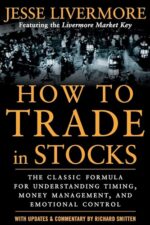Good Stocks Cheap: Value Investing with Confidence for a Lifetime of Stock Market Outperformance
$14.22
Good Stocks Cheap puts forth a model. It’s a model used to vet stock investment ideas from a value investing perspective. Which is useful, because that’s the perspective that delivers the highest returns over time. The model does three things. First, it makes it likely that one will make investments that, over a lifetime, produce above market rates of return. Second, the model makes it unlikely that one will make investments that deliver below- market rates of return. So far, so good. The model begins with three steps. Each step is a question that we ask of the proposed investment. First, do I understand it? Second, is it good? And third, is it inexpensive?
Introduction:
The three steps are sequential. They’re to be answered in order. And each must be answered with a yes in order to move on to the next. If an investment isn’t understood, there’s no point in seeing if it’s good. If it’s not good, there’s no point in seeing if it’s inexpensive. The moment one gets a no, one can reject the idea. So the model sets a high standard for one’s investments. They must be understandable, good, and inexpensive. There’s much more to the model. We’ll develop it naturally over the coming chapters. Any motivated person is capable of mastering all of it regardless of education, profession, or experience.
The model pulls from three disparate disciplines: finance, strategy, and psychology. The first discipline, finance, reveals which companies have been operationally successful and are underpriced. It’s accounting, plus some calculations based on that accounting. It’s a quantitative activity that happily requires nothing more complicated than simple math. The second discipline, strategy, shows which companies with successful pasts promise to have successful futures. It’s qualitative. It involves thinking about what sets a company apart from its peers, and picturing it years onward. The third, psychology, is about the restraint necessary to reject the misjudgments that naturally arise from one’s inborn biases. Humans think funny. It’s not that we’re silly or wrong. It’s just that we’re people. To be mindful of the bad calls we’re likely to make is to maximize the chance that we’ll catch them before they hurt us.
In short, our approach is interdisciplinary. It’s interdisciplinary not because we need to show the world how Renaissance we are. It’s interdisciplinary because it has to be. Someone good at crunching numbers but ignorant of cognitive biases has a limitation. A good corporate strategist who can’t read a financial statement stands no chance. And a psychologist who can’t recognize strategic advantage won’t beat the market. This is why successful value investors routinely call on all three of these disciplines. But this is easy to miss. Many investing books focus on financial analysis. Some add competitive strategy. But psychology tends to be a stand-alone topic. I think that this is because professional value investors—particularly those who write books—are already so practiced at self-discipline that they don’t see psychology as a discrete subject worthy of attention. I do.
This book cites specific corporations to provide examples. They’re reliable as of this writing. But businesses change. Scandals emerge. Strategies shift. Companies cited for one characteristic in these pages may come to be known for an altogether different one in the future. Some changes will be spectacular and some will be shameful, but all are unforeseen by your author. Readers are therefore advised to make sure that this is the most recent edition of this book. That should lessen the chance that what was timely in the year of writing seems odd in the year of reading.
Contents:
- The Quiet Outperformer
- Why Stocks?
- Price and Value Are Different
- Measuring Performance
- Understanding the Business
- Accounting Is a Language
- Capital Employed
- Operating Income
- Free Cash Flow
- Book Values and Shares
- Past Performance
- Future Performance
- Shareholder- Friendliness
- Inexpensiveness
- Price Drives Risk
- Misjudgment and Misaction
- Portfolios and Selling
- Endurance
- Generating Ideas
- Differences Among Value Investors
- Preservation
Good Stocks Cheap: Value Investing with Confidence for a Lifetime of Stock Market Outperformance By Kenneth Jeffrey Marshall pdf
| Author(s) | |
|---|---|
| Format | |
| Pages | 241 |
| Publication Year | 2017 |









